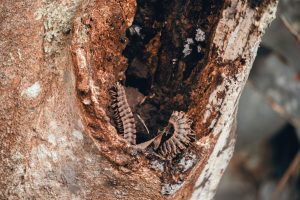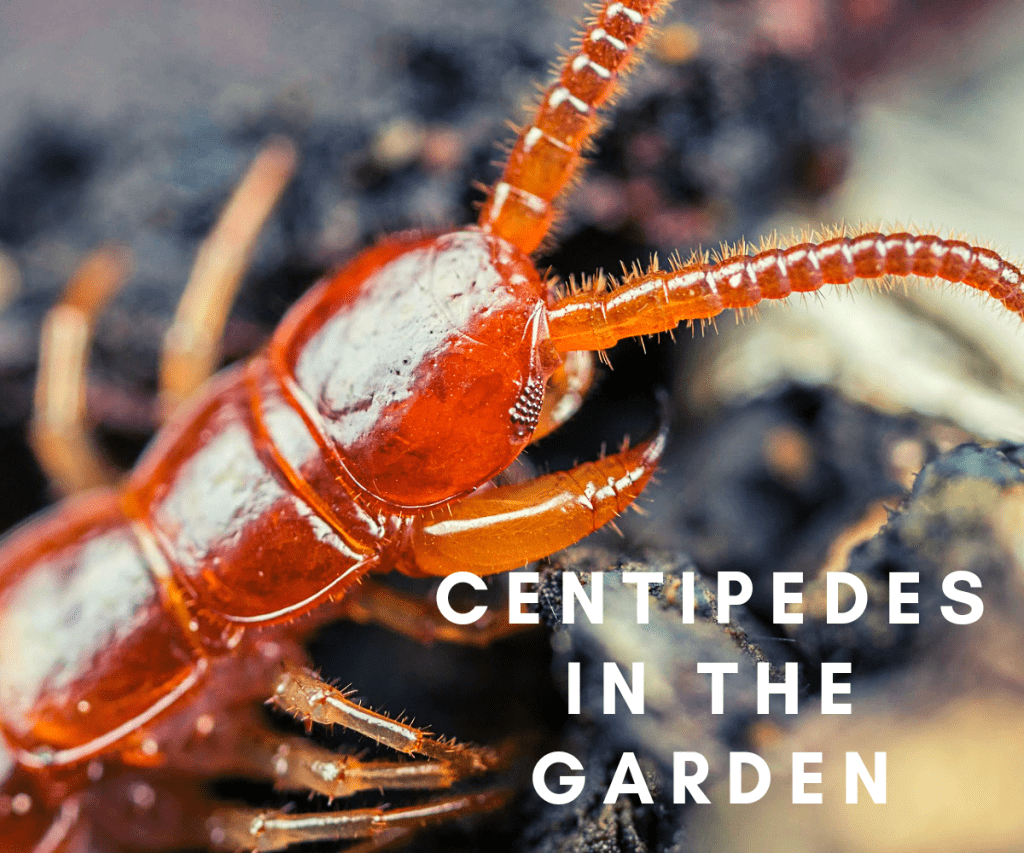Centipedes in the garden, a friend or a foe? These creatures otherwise called “hundred-leggers” can be harmful to humans after a bite.
Usually, their victims are mostly gardeners with symptoms like severe pain, swellings, chest pain, heart tremors, nausea and vomiting and redness at the bite site, lasting about 48 hours or more to people who are more sensitive.
But, are Centipedes only associated with negativities or is there a positive side to their presence in a garden?
The answer is yes, there are. Centipedes in the garden have been discovered to have lots of benefits.
This is because they feed on pests and help improve crop quality. However, if they’re overpopulated it can cause harm.
Mostimes, you may naturally panic when you see a centipede in your garden because they look frightful and seem destructive.
However, appearance can be deceptive because these creatures can also be a friend or a foe of course.
In this article, we’ve highlighted the top facts about centipedes in the garden, which will help you know if they’re true friends or foes.
What to Know about Centipedes
Centipedes are sometimes referred to as insects by some persons. But with 15 legs, you cannot classify them as insects.
Centipedes belong to a family known as anthropods. They look like worms and have flat bodies with different colors and body segments. Each body segment has one pair of legs.
Centipedes are primarily carnivores that hunt everything they find. They like damp and poorly lit areas, which makes their favorite habitat a dark place under leaves, wood logs, residues, and closets like bathrooms.
They vary in length. Centipedes have one pair of antennae that you can easily see.
Though they have poorly developed eyes that are primarily active at night, their antennas make it easy for them to locate their prey.
Centipedes also have their first pair of legs modified into defensive claws. These claws are known as appendages. Primarily, they attack and feed on earthworms, mites, and cockroaches.
The creatures spend the winter as adults and lay eggs while emitting an irritating fluid that can cause them to feel attacked—however, only the giant centipede bite. The little ones don’t have such strength.
Centipedes in the Garden As a Friend

As a friend, centipedes in the garden are harmless garden guests that are super beneficial to the plants in your garden.
They feed on garden pests and help to improve the quality of crops. They also eat the eggs and larvae of pests yet to emerge from the soil.
Indeed, centipedes also function to help you get rid of the pest that destroys the crops in your garden.
Centipedes in the Garden as Foes
Centipedes bites on humans can cause a couple of health problems, that can be cery discomforting and may need medication, but such symptoms only last for 48 hours after the attack in mostcases.
This attack makes humans see them as foes. However, in your garden, centipedes can also become foes when they pose a threat to crops.
This happens when, centipedes in the garden become too many in number the population grows, they will become prey to your plant and can actively damage your young seedlings.
If you notice that centipedes in your garden are more than expected, you need to control the population.
Benefits Of Centipedes In The Garden
Centipedes are valuable garden guests because they consume thousands of pests that dwell in the soil to destroy crops.
They’re several other benefits to having centipedes in your garden. So. Here are other benefits of having centipedes in your garden.
1. Building The Soil For The Improvement Of Crops
Centipedes are commonly found inside the soil, feeding on decomposed plants and dwelling creatures.
Due to this, they enrich the ground with their nutrients and improve it for planting.
In the soil food web, the centipede is the largest terrestrial invertebrate and is known as a top predator.
However, they have poor eyesight, and some are even blind. They move through the soil by expanding their length forward and spreading their antennas nearly as long as their legs.
While they plough through the soil, they eat dead plants and tiny insects. Through this method of plowing, they form a tunnel in the soil, a process known as tunneling.
This tunnel makes it easy for water to penetrate the soil and improve aeration.
This aeration allows water and nutrients to expand and reach the roots of the crops.
With this moisture, the plantain in your garden grows effectively and yields more crops.
2. They Serve As Food For Other Species
Another reason why centipedes in the garden are considered friends than foes is because some predators like raccoons, birds, and reptiles also attack crops.
They sometimes get into the garden and feed on your crops, resulting in decaying plants that cause low yields.
With such attacks, centipedes prove to be a friend by saving your crops.
The crops in your garden are safe because though these species feed on crops, they in turn feed on centipedes, which serve as a valuable food source for them.
So, when they enter your garden to attack crops and find centipedes, they feed on them instead, and your crops are protected.
Though, you will definitely need to get rid of them by using repellents, sealing hiding sources, fill in burrows, remove any pile ups, use safe chemicals for crops but deadly for predators etc.
3. They Break Down organic matter To Form Manure
Centipedes form an essential part of the soil by breaking down organic matter and animal debris.
When they break down this organic matter, it creates a humus that serves as manure that enriches the soil.
Centipedes are known as piercing predators because they have 15 very sharp legs.
These strong legs quickly cut through organic matter like leaves, stems, tree roots, branches, etc., and reduce it into tiny particles.
These tiny particles of organic matter decay and later form into the nutrients that crops need to survive in the soil.
Conclusion
Centipedes in the garden may be beneficial, but they can become pests over time.
The more they feed on insects and other species, the more population grows. When the population grows, they become pests that can join in attacking the crops in your garden.
When this happens, you should reduce their population, you can get rid of them using natural insecticide or a barrier like earth mold.
Also, you can use your hands to remove them, but this can be risky. So, if you try to remove them and they still prove stubborn, call an exterminator for assistance.
